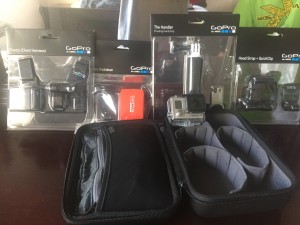It is great to be in Seattle, WA for my first time. I have heard so many things about this great city, and it seems that our Federal Aviation Administration Project has dropped us right in the middle of the city for our meeting—well maybe not the center of the city. I cannot see the Space Needle from here. I hear that is for tourists anyhow. (Maybe some other time.) I wish I had more time.

We are in a great spot though. The Skyline Room in the Museum of Flight has a phenomenal view of the King’s County International Airport (perhaps the smallest international airport I have seen—I suppose they must fly to Canada) and the fall colors are just starting to reveal themselves on the hill beyond.
The Federal Aviation Administration is targeting production of 13 billion gallons of alternative jet fuels by 2030. This involves the investigation of new developing feedstocks, new conversation technologies, certification of these technologies, environmental certification of products, social factors, logistics, life cycle costing, and land use change. It is a massive project. The ASCENT—the Aviation Sustainability Center—is a research consortium led by Washington State University and the Massachusetts Institute of Technology involving 16 university partners including 31 total projects. Our work here in Illinois focuses on supply chain logistics of biomass feedstocks within what has become known as the MASBI region (as previously defined by the Midwest Aviation Sustainable Biofuels Initiative) is a small portion of the ASCENT 001 project, which also includes participation from the Volpe Transportation Center, the Pacific Northwest National Laboratory, and Argonne National Laboratory.
It seems that the participants here at the ASCENT meeting are strongly motivated to see alternative jet fuels (biofuels) on the market in the near future. A few processes are going through certification and if so, any one of these, or several, may soon be powering jet plane carrying you—especially on an international flight.
Agricultural residues like corn stovers are an especially attractive feedstock in the Midwest. They are available and some folks would love to move them off of their fields, as they can accumulate after several years of no-till farming. We are also considering the use of winter cover crops, dedicated energy crops, and forest residues. There may be numerous environmental impacts beyond beneficial greenhouse gas balances, notably some potential surface water quality improvements depending on the feedstock.
The real question is whether this can be economically attractive. The room here today is dominated by agricultural economists, if I am not mistaken, although certainly the aviation industry is well represented. It will be very interesting to see the development of this research and development unfold over the next few years.





